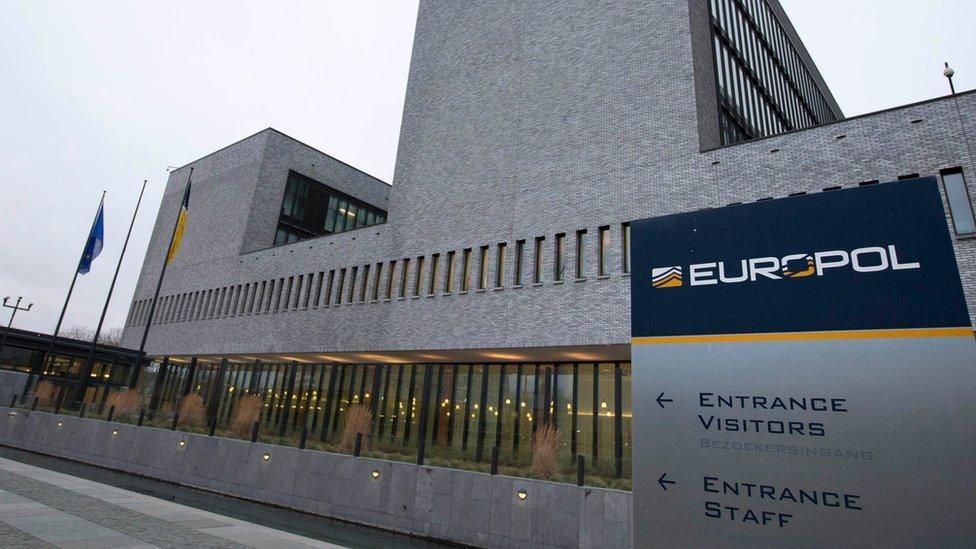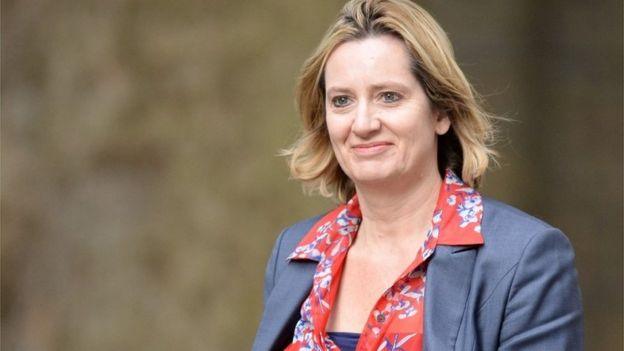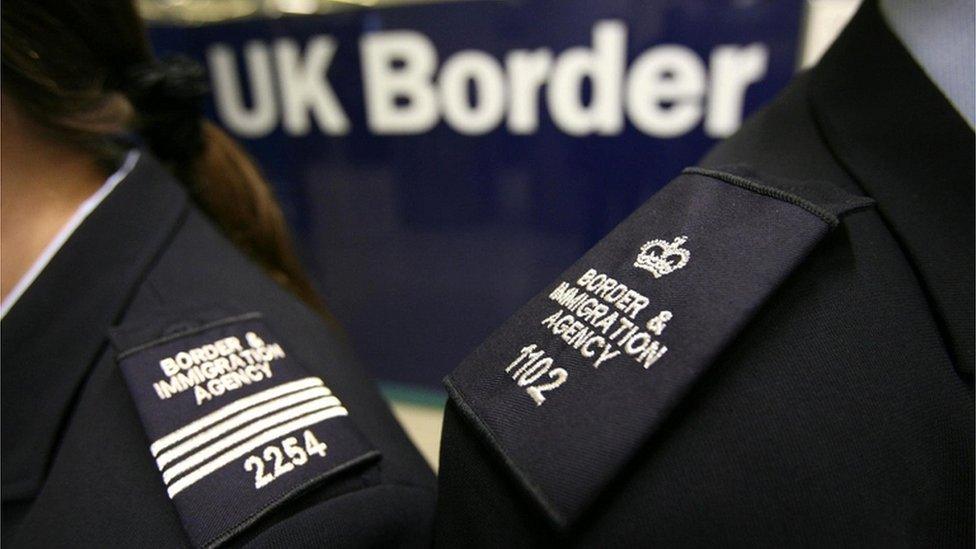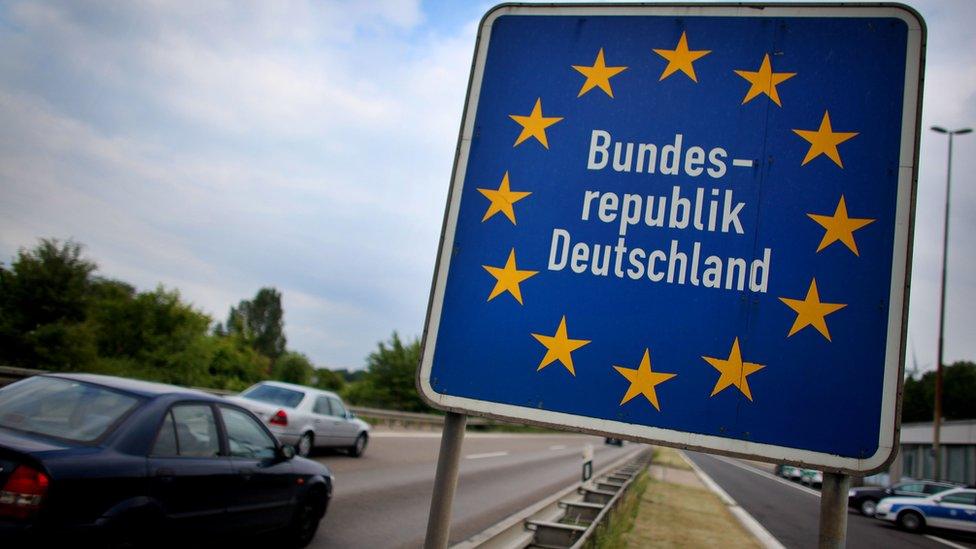UK warned it could lose access to Europol intelligence
- Published

Europol holds data on offences and suspects involved in organised crime and terrorism
The UK could lose access to vital intelligence unless it signs up to new powers for EU crime-fighting agency Europol, it has been warned.
The National Crime Agency's David Armond said an "immediate", "urgent" decision is needed or the UK would be forced out of the organisation.
He added that the issue was a "priority" and represented the "alligators nearest the boat".
The Home Office said a decision would be made in "due course".
The European Parliament agreed in May to enhance Europol's mandate and improve the way it tackles cross-border crime and terrorism - but the UK has so far not opted in to the relevant agreement.
Forced out
Mr Armond, the NCA's deputy director general, said if the UK agreed to continue its membership it would also be in a stronger position during the two years of Brexit negotiations.
He told the House of Lords EU home affairs sub-committee: "The risk closest to us relates to the signing of the Europol regulation. We are the only member state that has not signed."
If the government does not sign the regulation by Christmas, it will be forced out of Europol by 1 May of next year, when that regulation comes into force, he added.
Although it is expected that the UK will not remain in Europol after Brexit, the sub-committee heard it was important to continue as a member until that point - estimated to be in 2019 - to help smooth the transition and agree an alternative set of arrangements.
Mr Armond said the "direct impact" of being removed from Europol would be that the UK would lose "immediate access" to the Secure Information Exchange Network Application - this allows operational and strategic crime-related information and intelligence to be shared between Europol, EU member states and other countries.
He went on to say the police would also no longer be able to benefit from the Europol Information System, which holds data on offences and suspects involved in organised crime and terrorism.
'Five Eyes' countries
The UK's 17-strong law enforcement team based at the crime-fighting agency headquarters in The Hague would also have to leave. Launched in 1999, Europol has 1,000 staff and has a British director, Rob Wainwright.
Mr Armond said any alternative arrangement to full membership would be "sub-optimal, not as good as what we've currently got".
The other "Five Eyes" countries - Australia, Canada, New Zealand and the United States - would have to reconsider their relationship with the EU as they sometimes relied on the UK to provide information from Europol, he said.
Committee members heard that agreements would also have to be reached on a range of other EU security and crime-fighting measures, including the European Arrest Warrant scheme, the Schengen Information System and a database for exchanging DNA and fingerprint data.
Last month, the Scottish government wrote to Home Secretary Amber Rudd urging her to sign the new Europol protocols.
It said it was "necessary" to keep Scotland and the rest of the UK safer from the threats of crime and terrorism.
- Published30 September 2016

- Published7 June 2016

- Published24 April 2016
